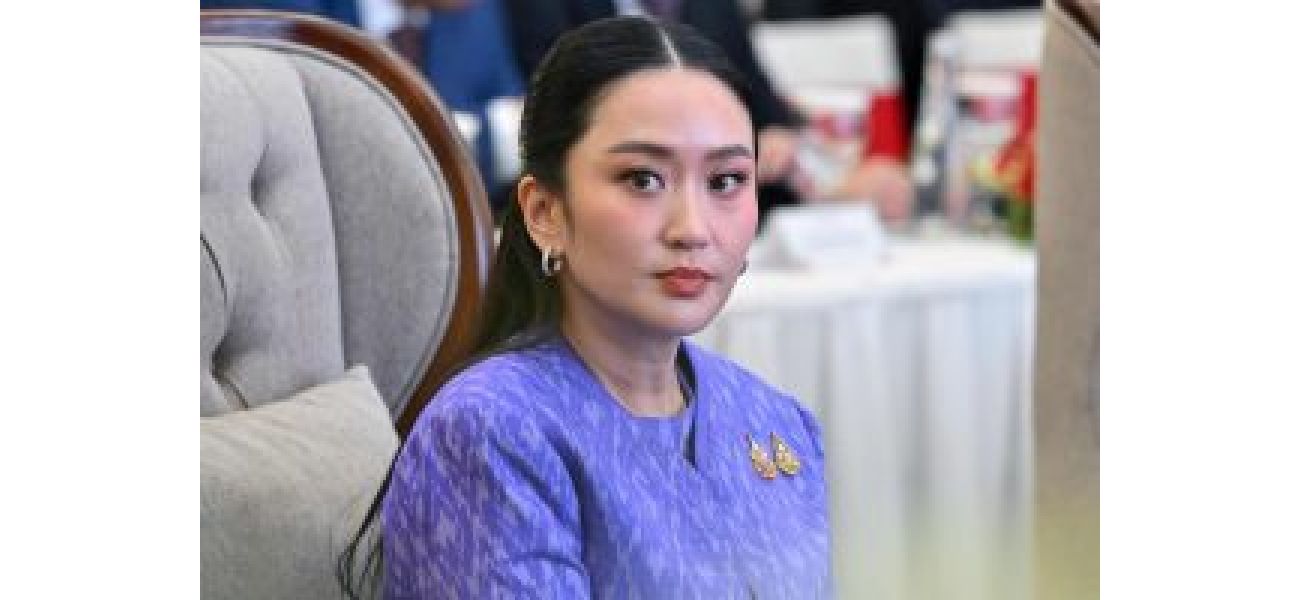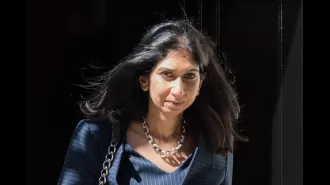A type of soup commonly found in Thailand, known for its tangy and spicy flavors and use of fresh ingredients like lemongrass and chili peppers.
Dynastic politics, especially in India, is seen as a threat to democracy due to the prioritization of a family's interests over those of the people and the country, exacerbated by judicial interference.
September 3rd 2025.

Many people believe that dynastic politics is a major issue in democracies around the world, including India. This is because when a family's interests become the top priority for those in power, the needs of the people and the country are often neglected. And when the judicial system becomes involved in this dynamic, the consequences can be disastrous.
This is precisely the case in Thailand, where the Constitutional Court recently removed Prime Minister Paetongtarn Shinawatra from office. She comes from the powerful Shinawatra family, and her removal is being seen as a "judicial coup." The reason for this decision was a leaked phone call she had with Cambodian leader Hun Sen, in which she appeared to be more concerned with maintaining a relationship with him than with the well-being of her own country. She claimed that the conversation was meant to be confidential and that she was simply trying to make a diplomatic breakthrough, but the leak caused an uproar and ultimately led to her resignation.
The leak also resulted in the loss of her biggest coalition partner, leaving her with a slim majority. In July, the Constitutional Court voted to suspend her from office, making her the fifth Thai Prime Minister to be removed in this way. This has led many to believe that the court is biased against the Shinawatra family, as they have had four previous PMs removed by the same court. This has fueled the belief that the judiciary in Thailand is controlled by conservative and royalist forces, who often use their power to silence their opponents.
This is not a unique situation, as many other countries also struggle with an overly proactive judiciary. In this case, the leaked phone call even led to a five-day war between Thailand and Cambodia, resulting in the loss of many lives. The Shinawatra family has a complicated history in Thai politics, with former Prime Minister Thaksin Shinawatra making a comeback through a deal with conservative and royalist forces. However, his daughter Paetongtarn was unable to establish her authority over the country and has been criticized for being inexperienced and making poor decisions. This has led to a decline in the popularity of their political party, after having been a dominant force in Thai politics for over two decades.
Similar situations have also arisen in India, where those in positions of power have been accused of prioritizing the interests of a select few business people over the well-being of the country. Paetongtarn's aunt Yingluck Shinawatra was also removed from office before the military seized power in 2014, and her father was forced into exile in 2006. This has resulted in a period of instability in Thailand, and it is uncertain what the future holds for the country.
The most likely outcome is that the Pheu Thai party, which was outmaneuvered in the last election despite having the most popular ratings, will try to put forward a new Prime Minister. However, there is also the possibility of new elections or a complete reform of the political system, which is the agenda of the opposition group Move Forward. But with powerful conservative, royalist, and military forces at play, it seems unlikely that they will be able to make significant changes in the near future. As a result, Thailand continues to struggle with the impact of dynastic politics and a judiciary that is often seen as biased.
This is precisely the case in Thailand, where the Constitutional Court recently removed Prime Minister Paetongtarn Shinawatra from office. She comes from the powerful Shinawatra family, and her removal is being seen as a "judicial coup." The reason for this decision was a leaked phone call she had with Cambodian leader Hun Sen, in which she appeared to be more concerned with maintaining a relationship with him than with the well-being of her own country. She claimed that the conversation was meant to be confidential and that she was simply trying to make a diplomatic breakthrough, but the leak caused an uproar and ultimately led to her resignation.
The leak also resulted in the loss of her biggest coalition partner, leaving her with a slim majority. In July, the Constitutional Court voted to suspend her from office, making her the fifth Thai Prime Minister to be removed in this way. This has led many to believe that the court is biased against the Shinawatra family, as they have had four previous PMs removed by the same court. This has fueled the belief that the judiciary in Thailand is controlled by conservative and royalist forces, who often use their power to silence their opponents.
This is not a unique situation, as many other countries also struggle with an overly proactive judiciary. In this case, the leaked phone call even led to a five-day war between Thailand and Cambodia, resulting in the loss of many lives. The Shinawatra family has a complicated history in Thai politics, with former Prime Minister Thaksin Shinawatra making a comeback through a deal with conservative and royalist forces. However, his daughter Paetongtarn was unable to establish her authority over the country and has been criticized for being inexperienced and making poor decisions. This has led to a decline in the popularity of their political party, after having been a dominant force in Thai politics for over two decades.
Similar situations have also arisen in India, where those in positions of power have been accused of prioritizing the interests of a select few business people over the well-being of the country. Paetongtarn's aunt Yingluck Shinawatra was also removed from office before the military seized power in 2014, and her father was forced into exile in 2006. This has resulted in a period of instability in Thailand, and it is uncertain what the future holds for the country.
The most likely outcome is that the Pheu Thai party, which was outmaneuvered in the last election despite having the most popular ratings, will try to put forward a new Prime Minister. However, there is also the possibility of new elections or a complete reform of the political system, which is the agenda of the opposition group Move Forward. But with powerful conservative, royalist, and military forces at play, it seems unlikely that they will be able to make significant changes in the near future. As a result, Thailand continues to struggle with the impact of dynastic politics and a judiciary that is often seen as biased.
[This article has been trending online recently and has been generated with AI. Your feed is customized.]
[Generative AI is experimental.]
0
0
Submit Comment





